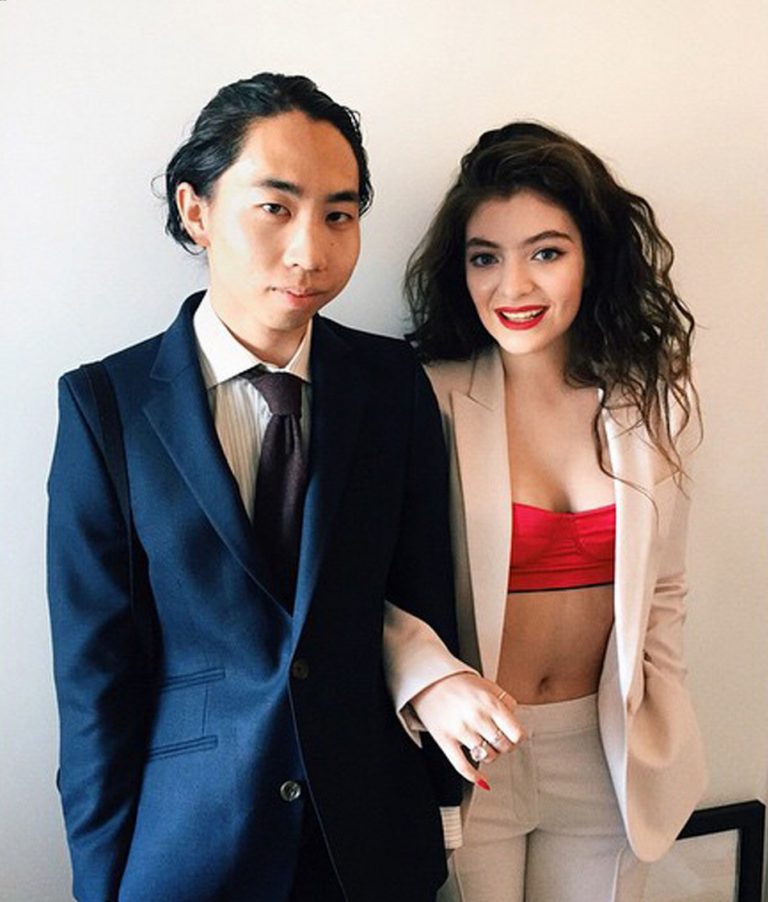EPISODE 8
“Mrs. Martin is like a mother to me. I would never be that cruel.
I may sound unkind because I’m doing my best to point something out
to the two of you. I want to expand your point of view so you can see
something most people never have the benefit of seeing because their
vision is too narrow. Most people never see the trap they are in.”
Mike and I sat there, uncertain of his message. He sounded cruel,
yet we could sense he was trying to drive home a point.
With a smile, rich dad said, “Doesn’t that 25 cents an hour sound
good? Doesn’t it make your heart beat a little faster?”
I shook my head no, but it really did. Twenty-five cents an hour
would be big bucks to me.
“Okay, I’ll pay you a dollar an hour,” rich dad said, with a sly grin.
Now my heart started to race. My brain was screaming, “Take it.
Take it.” I could not believe what I was hearing. Still, I said nothing.
“Okay, two dollars an hour.”
My little brain and heart nearly exploded. After all, it was 1956
and being paid $2 an hour would have made me the richest kid in
the world. I couldn’t imagine earning that kind of money. I wanted to
say yes. I wanted the deal. I could picture a new bicycle, new baseball
glove, and the adoration of my friends when I flashed some cash.
On top of that, Jimmy and his rich friends could never call me poor
again. But somehow my mouth stayed shut.
The ice cream had melted and was running down my hand. Rich
dad was looking at two boys staring back at him, eyes wide open and
brains empty. He was testing us, and he knew there was a part of our emotions that wanted to take the deal. He understood that every
person has a weak and needy part of their soul that can be bought,
and he knew that every individual also had a part of their soul that
was resilient and could never be bought. It was only a question of
which one was stronger.
“Okay, five dollars an hour.”
Suddenly I was silent. Something had changed. The offer was too
big and ridiculous. Not many grown-ups in 1956 made more than
that, but quickly my temptation disappeared, and calm set in. Slowly,
I turned to my left to look at Mike. He looked back at me. The part
of my soul that was weak and needy was silenced. The part of me that
had no price took over. I knew Mike
had gotten to that point too.
“Good,” rich dad said softly. “Most
people have a price. And they have a
price because of human emotions named
fear and greed. First, the fear of being
without money motivates us to work hard, and then once we get that
paycheck, greed or desire starts us thinking about all the wonderful
things money can buy. The pattern is then set.”
“What pattern?” I asked.
“The pattern of get up, go to work, pay bills; get up, go to work,
pay bills. People’s lives are forever controlled by two emotions: fear
and greed. Offer them more money and they continue the cycle by
increasing their spending. This is what I call the Rat Race.”
“There is another way?” Mike asked.
“Yes,” said rich dad slowly. “But only a few people find it.”
“And what is that way?” Mike asked.
“That’s what I hope you boys will learn as you work and study
with me. That is why I took away all forms of pay.”
“Any hints?” Mike asked. “We’re kind of tired of working hard,
especially for nothing.”
“Well, the first step is telling the truth,” said rich dad.
“We haven’t been lying,” I said
“I did not say you were lying. I said to tell the truth,” rich
dad retorted.
“The truth about what?” I asked.
“How you’re feeling,” rich dad said. “You don’t have to say it
to anyone else. Just admit it to yourself.”
“You mean the people in this park, the people who work for you,
Mrs. Martin, they don’t do that?” I asked.
“I doubt it,” said rich dad. “Instead, they feel the fear of not
having money. They don’t confront it logically. They react emotionally
instead of using their heads,” rich dad said. “Then, they get a few
bucks in their hands and again, the emotions of joy, desire, and greed
take over. And again they react, instead of think.”
“So their emotions control their brain,” Mike said.
“That’s correct,” said rich dad. “Instead of admitting the truth
about how they feel, they react to their feelings and fail to think.
They feel the fear so they go to work, hoping that money will soothe
the fear, but it doesn’t. It continues to haunt them and they return
to work, hoping again that money will calm their fears, and again it
doesn’t. Fear keeps them in this trap of working, earning money,
working, earning money, hoping the fear will go away. But every day
they get up, and that old fear wakes up with them. For millions of
people that old fear keeps them awake all night, causing a night of
turmoil and worry. So they get up and go to work, hoping that a
paycheck will kill that fear gnawing at their soul. Money is running
their lives, and they refuse to tell the truth about that. Money is in
control of their emotions and their souls.”
Rich dad sat quietly, letting his words sink in. Mike and I heard
what he said but didn’t understand fully what he was talking about.
I just knew that I often wondered why grown-ups hurried off to
work. It did not seem like much fun, and they never looked that
happy, but something kept them going.
Realizing we had absorbed as much as possible of what he was
talking about, rich dad said, “I want you boys to avoid that trap.
That is really what I want to teach you. Not just to be rich, because
being rich does not solve the problem.”
“It doesn’t?” I asked, surprised.
“No, it doesn’t. Let me explain the other emotion: desire. Some
call it greed, but I prefer desire. It’s perfectly normal to desire something
better, prettier, more fun, or exciting. So people also work for money
because of desire. They desire money for the joy they think it can buy.
But the joy that money brings is often short-lived, and they soon need
more money for more joy, more pleasure, more comfort, and more
security. So they keep working, thinking money will soothe their souls
that are troubled by fear and desire. But money can’t do that.”
“Even rich people do this?” Mike asked.
“Rich people included,” said rich dad. “In fact, the reason many rich
people are rich isn’t because of desire, but because of fear. They believe
that money can eliminate the fear of being poor, so they amass tons of it,
only to find the fear gets worse. Now they fear losing the money. I have
friends who keep working even though they have plenty. I know people
who have millions who are more afraid now than when they were poor.
They’re terrified of losing it all. The fears that drove them to get rich
got worse. That weak and needy part of their soul is actually screaming
louder. They don’t want to lose the big houses, the cars and the high life
money has bought them. They worry about what their friends would say
if they lost all their money. Many are emotionally desperate and neurotic,
although they look rich and have more money.”
“So is a poor man happier?” I asked.
“No, I don’t think so,” replied rich dad. “The avoidance of money
is just as psychotic as being attached to money.”
As if on cue, the town derelict went past our table, stopping by
the large rubbish can and rummaging around in it. The three of us
watched him with great interest, when before we probably would
have just ignored him.
Rich dad pulled a dollar out of his wallet and gestured to the
older man. Seeing the money, the derelict came over immediately,
took the bill, thanked rich dad profusely, and hurried off, ecstatic
with his good fortune.
“He’s not much different from most of my employees,” said rich
dad. “I’ve met so many people who say, ‘Oh, I’m not interested in
money.’ Yet they’ll work at a job for eight hours a day. That’s a denial of
truth. If they weren’t interested in money, then why are they working?
That kind of thinking is probably more psychotic than a person who
hoards money.”
As I sat there listening to my rich dad, my mind flashed back to
the countless times my own dad said, “I’m not interested in money.”
He said those words often. He also
covered himself by always saying,
“I work because I love my job.”
“So what do we do?” I asked. “Not
work for money until all traces of fear
and greed are gone?”
“No, that would be a waste of time,”
said rich dad. “Emotions are what make
us human. The word ‘emotion’ stands for ‘energy in motion.’ Be
truthful about your emotions and use your mind and emotions in
your favor, not against yourself.”
“Whoa!” said Mike.
“Don’t worry about what I just said. It will make more sense in
years to come. Just be an observer, not a reactor, to your emotions.
Most people do not know that it’s their emotions that are doing the
thinking. Your emotions are your emotions, but you have got to learn
to do your own thinking.”
“Can you give me an example?” I asked.
“Sure,” replied rich dad. “When a person says, ‘I need to find
a job,’ it’s most likely an emotion doing the thinking. Fear of not
having money generates that thought.”
“But people do need money if they have bills to pay,” I said.
“Sure they do,” smiled rich dad. “All I’m saying is that it’s fear that
is all too often doing the thinking.”
“I don’t understand,” said Mike.
“For example,” said rich dad. “If the fear of not having enough
money arises, instead of immediately running out to get a job, they
instead might ask themselves this question: ‘Will a job be the best
solution to this fear over the long run?’ In my opinion, the answer is
no. A job is really a short-term solution to a long-term problem.”
“But my dad is always saying, ‘Stay in school and get good grades,
so you can find a safe, secure job,’” I interjected, somewhat confused.
“Yes, I understand he says that,” said rich dad, smiling. “Most people
recommend that, and it’s a good path for most people. But people make
that recommendation primarily out of fear.”
“You mean my dad says that because he’s afraid?”
“Yes,” said rich dad. “He’s terrified that you won’t earn enough
money and won’t fit into society. Don’t get me wrong. He loves you
and wants the best for you. I too believe an education and a job are
important, but it won’t handle the fear. You see, that same fear that
makes him get up in the morning to earn a few bucks is the fear that
is causing him to be so fanatical about your going to school.”
“So what do you recommend?” I asked.
“I want to teach you to master the power of money, instead of
being afraid of it. They don’t teach that in school and, if you don’t
learn it, you become a slave to money.”
It was finally making sense. He wanted us to widen our views
and to see what the Mrs. Martins of this world couldn’t see. He used
examples that sounded cruel at the time, but I’ve never forgotten
them. My vision widened that day, and I began to see the trap that
lay ahead for most people.
“You see, we’re all employees ultimately. We just work at different
levels,” said rich dad. “I just want you boys to have a chance to avoid
the trap caused by those two emotions, fear and desire. Use them in
your favor, not against you. That’s what I want to teach you. I’m not
interested in just teaching you to make a pile of money. That won’t
handle the fear or desire. If you don’t first handle fear and desire, and
you get rich, you’ll only be a highly paid slave.”
“So how do we avoid the trap?” I asked.
“The main cause of poverty or financial struggle is fear and
ignorance, not the economy or the government or the rich. It’s
self-inflicted fear and ignorance that keep people trapped. So you
boys go to school and get your college degrees, and I’ll teach you
how to stay out of the trap.”
The pieces of the puzzle were appearing. My highly educated dad
had a great education and a great career, but school never told him
how to handle money or his fear of it. It became clear that I could
learn different and important things from two fathers.
“So you’ve been talking about the fear of not having money. How
does the desire for money affect our thinking?” Mike asked.
“How did you feel when I tempted you with a pay raise? Did you
notice your desires rising?”
We nodded our heads.






